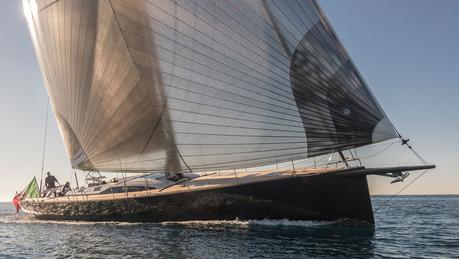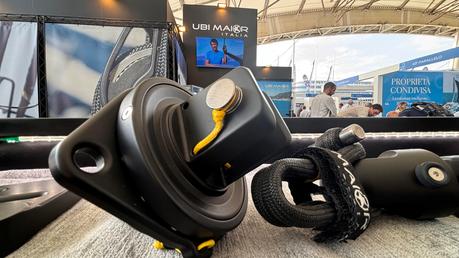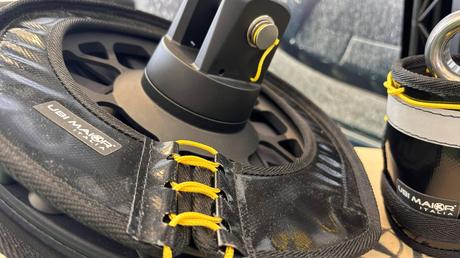Headsail furler, how to choose the best one for your boat? In recent years, the idea that has dominated since the early 90’s of a furling genoa for all seasons—has been abandoned. We’re now back to differentiating between headsails such as code 0, staysail, solent, drifter and cape sail.
The bow roller furler has solved many problems and is now increasingly used for both Code 0 and gennaker rigging. However, choosing a reefing-furling system isn’t that simple, and it’s often necessary to consider various aspects carefully before buying or modifying the equipment on board. That’s why we’ve turned to the experts, UBI MAIOR ITALIAwho provided us with further details and valuable advice.
The main difference is certainly between a BOTTOM UP and a winder TOP DOWN. It’s also worth remembering that a furler used for code 0 doesn’t need an anti-twist cable, as this is usually built into the sail itself.
In a BOTTOM UP system, designed for flat and furled sails, the simultaneous closing movement starts at the bottom and the sail is furled with an offset between the head and the tack. The result is a very tight sail at the bottom and a fuller sail at the top.
When using a gennaker or an asymmetrical sail, it’s necessary to install an anti-torsion rope and, above all, to adopt a floating tack. In this case, the sail, being unfurled and with a free tack, will start to furl from the top, obtaining a tighter twist at the top, while at the bottom the sail will be fuller.
On larger sizes, the floating tack was subjected to a lot of stress, which is why UBI MAIOR was the first to introduce a tapered bearing that reduces the workload. Code sails now often feature an integrated anti-torsion cable, or in some cases, some sailmakers use cableless technology.

The REWIND headsail furler is probably the “miracle solution” for both code zero and gennaker management. In fact, it’s the world’s first furler with a patented, deactivatable ratchet system. The first advantage of this product is that it assists you when closing the sail: the internal ratchet prevents the sail from opening during furling. This means you can keep the buckle disengaged even when closing, without the risk of unintentional sail opening. Compact and lightweight, the REWIND, originally designed to prevent the sail from opening accidentally, keeps the sail ready for use when sailing.
To increase the load-bearing capacity of the floating tack, cylinders rather than balls are used, providing a larger surface area for greater resistance and a more even distribution of force.

Choosing the sail before choosing the furler is fundamental: you need to assess the loads and the type of sail to be rigged. Rigging an unfurled sail is much more complex than it seems, and having the right deck equipment, combined with a good anti-twist line, can make a big difference, especially when conditions become more difficult and the crew isn’t responsive enough or doesn’t master manoeuvres perfectly.
Depending on your boat’s equipment, it’s important to choose the right accessories. A furling system, for example, requires special fastenings and equipment.
The classic fixed point for attaching and hoisting the sail, especially for a Code 0, should allow the halyard to be doubled with a tackle. Different types of hoist can be used, such as 2:1 or 3:1. The best set-up for a Code 0 is to have a 2:1 hoist at the top and a 2:1 hoist at the bottom, whenever possible.

